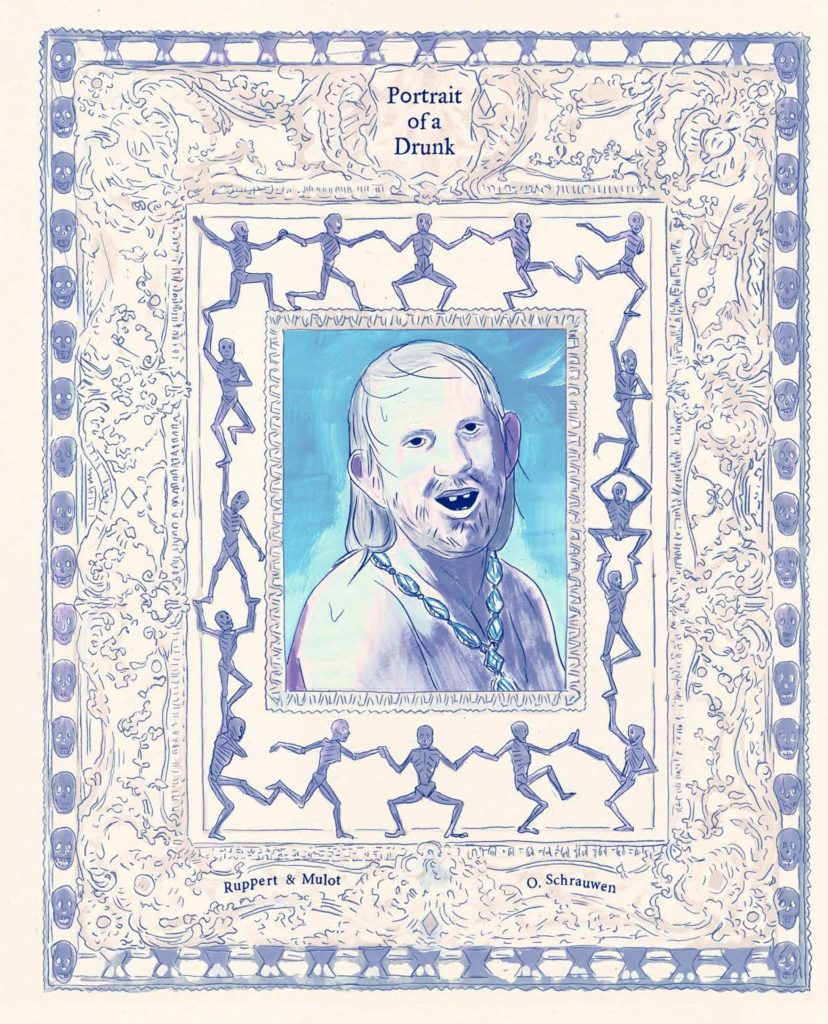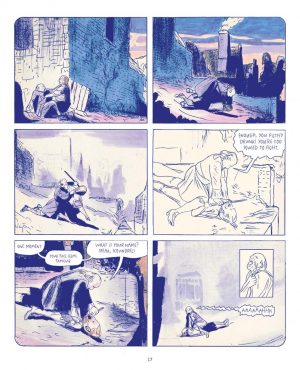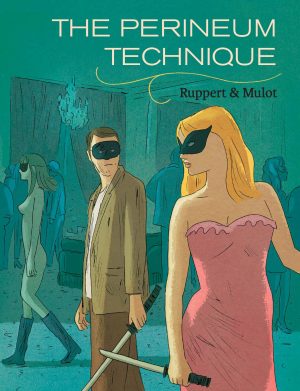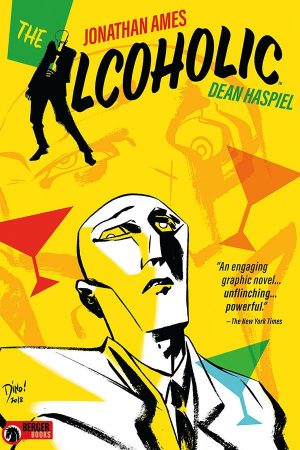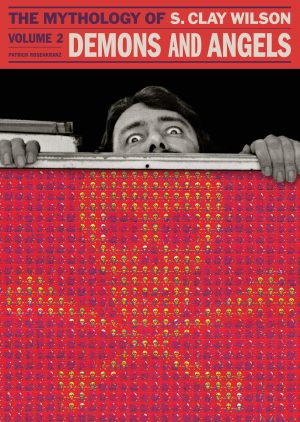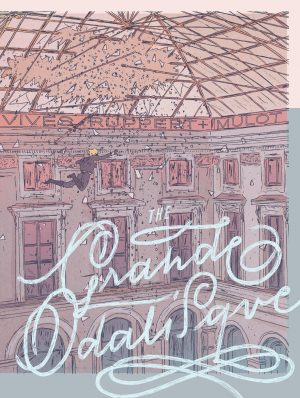Review by Frank Plowright
Jérôme Mulot and Florent Ruppert are a comic-producing collective, collaborating on both writing and art, and occasionally inviting another creator into their mix. Here it’s Olivier Schrauwen, although you’d have to have a knowledge of all contributors work to identify a definitive artistic breakdown. However, the delicately composed moving figures and unique pale, wispy colours are an utterly distinctive combination.
Although set a couple of centuries in the past, most readers will be acquainted with a version of the lead character, whose life is blighted by alcohol addiction. The opening section sees him awakening from the night before, propped against a wall, singing loudly as he remembers his name and begging as he works his way through town, eventually stealing a large flagon of alcohol. He drinks that rapidly before an altercation with a wealthy citizen whom he murders. That man ends up as commentator on Guy’s subsequent activities, viewing him from a Limbo whose population increases.
Most people are drawn without facial features, reflecting how they appear to the drunken Guy, and perhaps reversing how most of us see alcoholics in the street. Guy isn’t a figure of sympathy, callous and unpleasant even on the few occasions when seen sober, and lacking any regrets. His appalling behaviour redeems occasions that are almost pastiche as Mulot and Ruppert import scenes common to period maritime films, as following the murder Guy is next seen as a ship’s carpenter. Human concern manifests briefly when Guy searches for his apprentice, earlier used by Mulot and Ruppert as a Jiminy Cricket figure, while the first victim provides horrified moral commentary. Somewhere deep within Guy, though, there is acknowledgement, as it manifests during hallucinogenic withdrawal symptoms.
The creative team take a childish glee in the presentation of atrocities, some of which are creative. The pirates play a game they call Tequila Rambo, which involves downing a shot of tequila, squirting lemon juice in the eye and then being punched by the person standing to the right. It passes the time.
A sequence before the ending feels somewhat tacked on, but thankfully this is no comforting redemptive tale pleading for understanding. Guy is what he is and remains what he is, and for readers at least there’s a joy in that.
